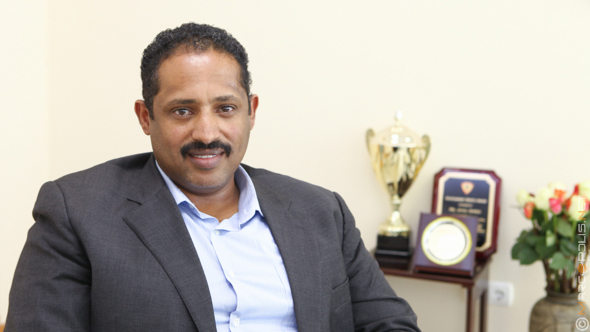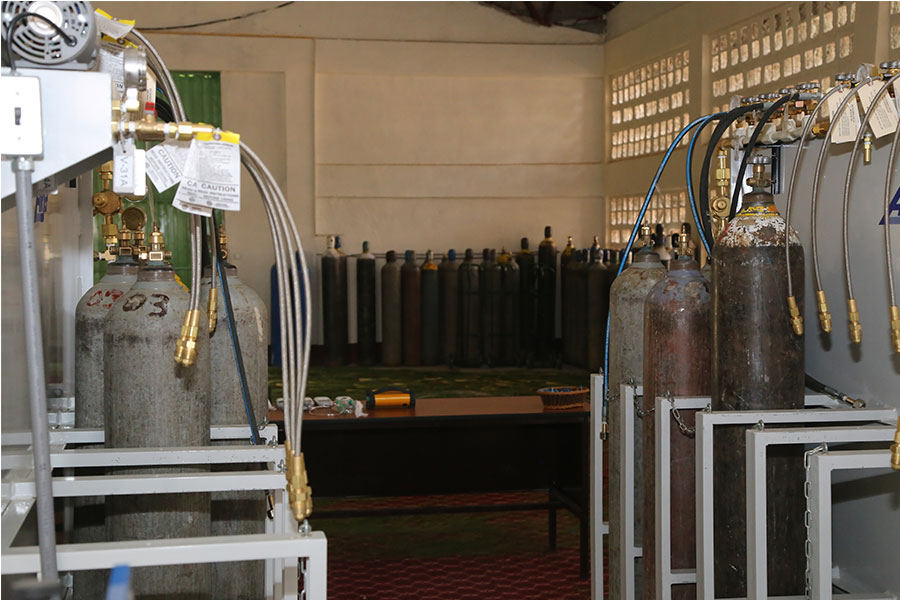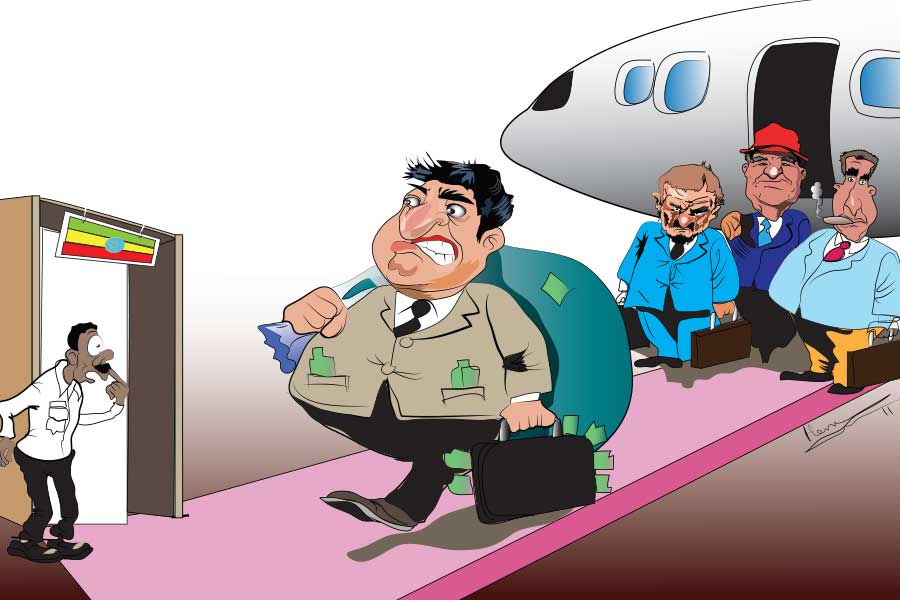
The Ethiopian Broadcasting Corporation has requested a 191-million-Br cash injection from the government for the payment of employees and satellite fees. The state broadcaster has been facing challenges due to declining advertisement revenue during the Novel Coronavirus (COVID-19) pandemic.
The Corporation has asked for 131 million Br for employee wages for four months starting in March. The remaining 60 million Br was requested for the payment of the Corporation's satellite fees.
The Corporation, which spends 32.8 million Br monthly on employment wages for its 2,322 employees across the country, has been raising revenue through sources like advertisements, sponsorships and other means such as training and property disposal. It is also eligible to receive financial support from the government.
The Corporation had collected 239 million Br in revenue until January and has now requested support for four months. In the last two years, the Corporation has received 60 million Br and 90 million Br, respectively, from the government for satellite fees and has managed to fully finance itself through the revenue it generated in 2016.
The request for the support was forwarded to the Speaker of Parliament on April 28, 2020, to be forwarded to the Ministry of Finance. The executives of the Corporation are awaiting a response this coming month. The Corporation has an annual planned budget of half a billion Birr, three radio channels, three television channels, digital media and 115 transmitters across the country.
It had shown an unprecedented growth in revenue before COVID-19 caused financial liquidity issues, according to Tefera Tolera, executive officer for the Corporation's financial administration division.
"We can't even collect the receivable money from companies since some of them have closed offices," he added.
Other television broadcasters in the country are also under heavy financial burdens for similar reasons. The Association of Ethiopian Broadcasters, in a letter dated April 27, 2020, to the Prime Minister's Office, detailed the importance of media in disseminating critical information on COVID-19 to the community and requested financial assistance for private television broadcasters in the country.
The letter further stated that a total of 13 television broadcasting institutions have spent 156 million Br worth of content and airtime distributing information on COVID-19 as public service announcements for free.
Although the institutions are commercial in nature, broadcasting public service announcements was their responsibility as citizens, according to Endashaw W. Michael, general manager for the Association, which has 13 television channels and one radio station among its members.
"Our contribution should be taken into consideration, and special attention should be given to the sector in this critical time," Endashaw added.
The Association has yet to get a concrete response but is pushing on all fronts and engaging different ministers in the meantime, according to Endashaw.
The Ethiopian Broadcasting Authority, the regulatory body, has also taken steps to aid the media in its current predicament.
The Authority, taking into consideration the high costs broadcasters face in relation to satellite fees, wrote to the satellite operator, Eutelsat, asking it to waive fees for broadcasters in the country, according to Getachew Dinku (PhD), the Authority's director-general.
"The response was that the company itself had to bear a lot of costs, and so it wasn't possible to waive the fees," said Getachew.
The Authority also sent requests through the National Bank of Ethiopia (NBE) and Berhanena Selam Printing Enterprise to avail their printing services on a loan basis.
"This was successful, even if the loan time is shorter than what we had asked for," Getachew told Fortune.
The media has been seeing a fall in revenue in the past two to three years due to laws that ban advertising as well as the foreign exchange crunch. These and other reasons had weakened it prior to COVID-19, and the sector is gasping for air, according to Henok Fente, a media expert and lead of the Ethiopian Civic Information Consortium, the ad hoc volunteer group working on recommendations to mitigate the impact of COVID-19 on the media.
"It's continued existence has come into question unless it gets support immediately," Henok said. "The sector has to look for diversified business models since the impact of the virus is going to be long-lasting."
There is a conflict of interest that prohibits capital injections from the government, but private media can benefit from different measures, such as fiscal relief and payroll protection programmes, waiving satellite fees and low-interest financing, according to Henok.
Paying for public service announcements is also another strategy, Henok said.
PUBLISHED ON
May 23,2020 [ VOL
21 , NO
1047]

Fortune News | Dec 26,2020

Radar | Sep 10,2021

Fortune News | Apr 06,2019

Radar | Oct 24,2020

Agenda | Jul 27,2019

Dec 22 , 2024 . By TIZITA SHEWAFERAW
Charged with transforming colossal state-owned enterprises into modern and competitiv...

Aug 18 , 2024 . By AKSAH ITALO
Although predictable Yonas Zerihun's job in the ride-hailing service is not immune to...

Jul 28 , 2024 . By TIZITA SHEWAFERAW
Unhabitual, perhaps too many, Samuel Gebreyohannes, 38, used to occasionally enjoy a couple of beers at breakfast. However, he recently swit...

Jul 13 , 2024 . By AKSAH ITALO
Investors who rely on tractors, trucks, and field vehicles for commuting, transporting commodities, and f...

Jun 28 , 2025
Meseret Damtie, the assertive auditor general, has never been shy about naming names...

Jun 21 , 2025
A well-worn adage says, “Budget is not destiny, but it is direction.” Examining t...

Jun 14 , 2025
Yet again, the Horn of Africa is bracing for trouble. A region already frayed by wars...

Jun 7 , 2025
Few promises shine brighter in Addis Abeba than the pledge of a roof for every family...